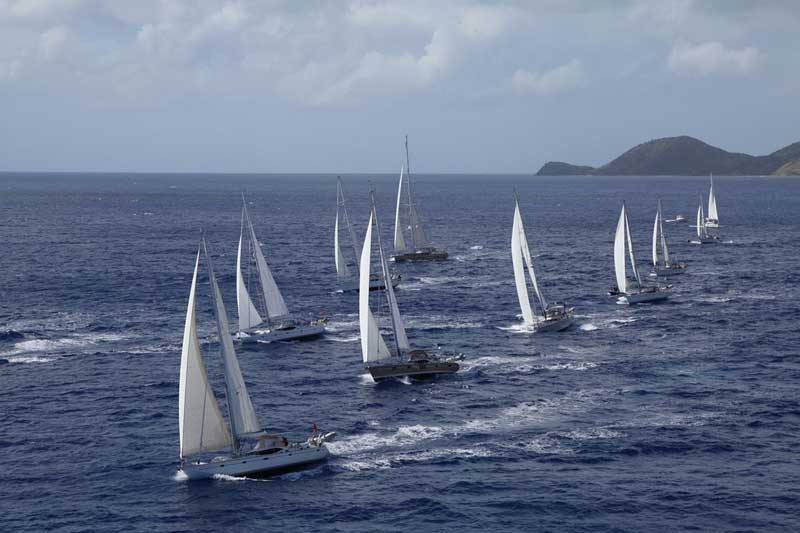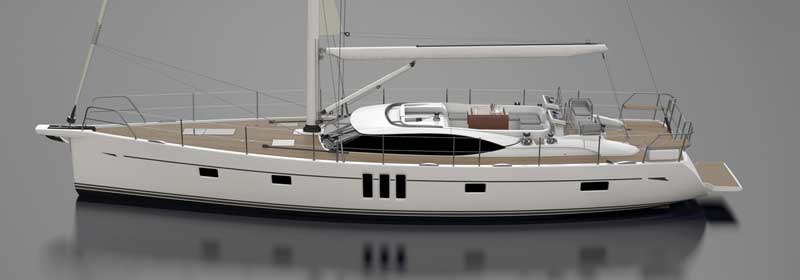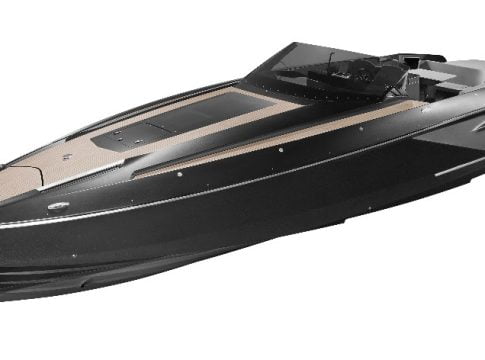In 2011 Oyster announced the Oyster 885 following extensive research and development of the project to build the Oyster 100 and 125.
Observing that the LY2/3 code requirements meant the Oyster 100 had only 5 cabins for the owner and crew – the team took on the challenge to comply with regulations, but more efficiently. Oyster 885 had to deliver a great deal – Superyacht equipment, levels of furnishings, bunk lengths, headroom and all of this in a hull just below the LY3 code rule length. Extensive tank-testing followed, a blade jib and roller boom configuration developed and the hull shape and appendages were refined. Recognising from this that the “6th Generation – G6” of Oyster concepts had been conceived – the company quietly went about redesigning the whole fleet. The Oyster 825 followed, then the Oyster 745, more tank-testing and then the Oyster 118 and most recently, the Oyster 675.
Completing the ‘G6’ fleet, Oyster is delighted to announce the two new models – the Oyster 565 (pictured below) and the Oyster 595. Aimed very much at the family sailor, and skillfully combining the learning from the larger yachts, these two new yachts also include many features refined with the 101 Oyster yachts that have circumnavigated (or are in the process of circumnavigating – 31 set sail on the Oyster World Rally last weekend on the 15th January 2017). Oyster believes that no other yacht builder has the combination of experience of large numbers of yachts circumnavigating with just the owners and friends on board and more than 35 ‘Superyachts’ built over 24 metres – the majority of whom traded up from Oyster previous ‘baby-superyachts’ – the Oyster 56, launched in 1998 and of which 75 were built. The Oyster 565 & 595 create the benchmark for future larger Superyachts.

Matthew Sheahan, Sailing journalist, said
“The launch of Oyster’s G6 fleet was a big step forward bringing Superyacht thinking into a new size range of bluewater cruisers. The 885 and 825 proved to be popular from the start, paving the way for the 745. This moved the company towards their next big design challenge, tackling the sub sixty-foot market, territory that split opinion among owners. Some were happy to run their boats themselves, while others would want to cater for a professional crew. Yet both would want the space, performance and diversity that had made the bigger sisterships so popular. While these were the underlying issues that inspired plans for the new 565 and 595, the new approach can be seen in many ways in layout and available options for the new boats. The provision for a forward owners’ cabin is a first in the Oyster range. A dinghy garage in the stern section is another. But there is a long list of refinements that have now worked their way down from the larger boats including; a bowsprit, twin rudders, flush decks, improved form stability and full width chain plates. And then there’s the bold call to announce two new designs at the same time. Design details and a fresh approach that marks a new chapter in the development of their fleet.”
Style, function, versatility and years of heritage.
The new Oyster 565 and 595 (and also the bigger sister, the Oyster 675) – offer very flexible accommodation – master cabin aft or forward, dinghies on davits or in a dinghy garage, huge versatility of sail lockers, lazarette storage, different cabin combinations from 2 to 5, sleeping anything from 2 couples to 10 on charter, Oyster reinvents the wheel for luxury yachts below 60ft. What other yacht offers you headroom and bunk lengths usually found on 80-100ft yachts, a customer service operation based on proven support of hundreds of yachts currently cruising far and wide..?






